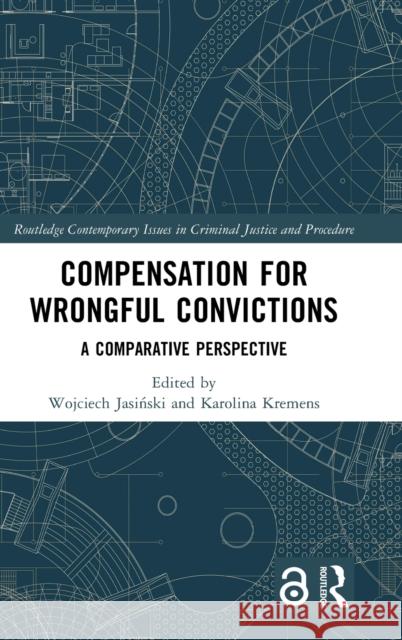Compensation for Wrongful Convictions: A Comparative Perspective » książka
Compensation for Wrongful Convictions: A Comparative Perspective
ISBN-13: 9781032134741 / Angielski / Twarda / 2023 / 264 str.
Compensation for Wrongful Convictions: A Comparative Perspective
ISBN-13: 9781032134741 / Angielski / Twarda / 2023 / 264 str.
(netto: 601,45 VAT: 5%)
Najniższa cena z 30 dni: 627,63
ok. 22 dni roboczych
Dostawa w 2026 r.
Darmowa dostawa!
This book presents a comprehensive comparative analysis of the substantive and procedural aspects of compensation for wrongful convictions in European countries and the USA, as well as the standard derived from the case law of the European Court of Human Rights. The collection draws comparative conclusions as to the similarities and differences between selected jurisdictions and assesses the effectiveness of the national compensation schemes. This enables the designing of an optimum model of compensation, offering accessibility and effectiveness to the victims of miscarriages of justice and being acceptable to jurisdictions based on common law, and civil law traditions, as well as inquisitorial and adversarial types of criminal process. Moreover, the discussion of the minimum European standard as established in the case law of the European Court of Human Rights enables readers to identify how the Strasbourg Court can contribute to strengthening the compensation scheme. The book will be essential reading for students, academics and policymakers working in the areas of criminal law and procedure.
This book presents a comprehensive comparative analysis of the substantive and procedural aspects of compensation for wrongful convictions in European countries and the USA, as well as the standard derived from the case law of the European Court of Human Rights. The collection draws comparative conclusions as to the similarities and differences between selected jurisdictions and assesses the effectiveness of the national compensation schemes. This enables the designing of an optimum model of compensation, offering accessibility and effectiveness to the victims of miscarriages of justice and being acceptable to jurisdictions based on common law, and civil law traditions, as well as inquisitorial and adversarial types of criminal process. Moreover, the discussion of the minimum European standard as established in the case law of the European Court of Human Rights enables readers to identify how the Strasbourg Court can contribute to strengthening the compensation scheme. The book will be essential reading for students, academics and policymakers working in the areas of criminal law and procedure.











